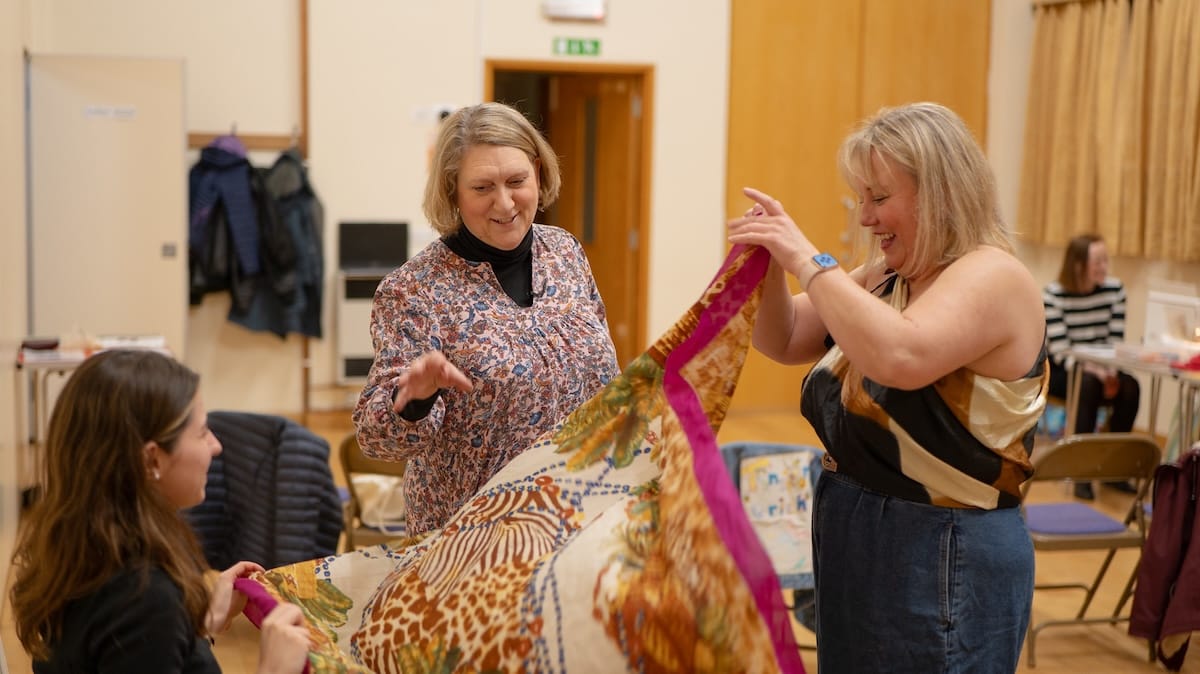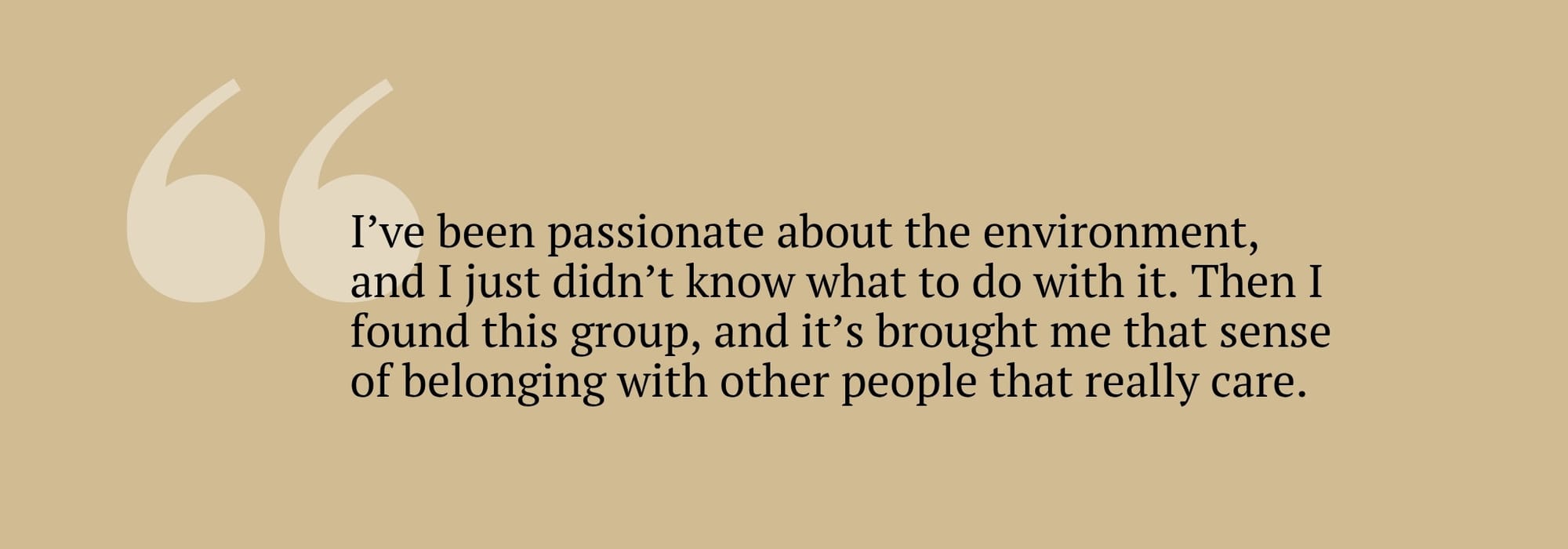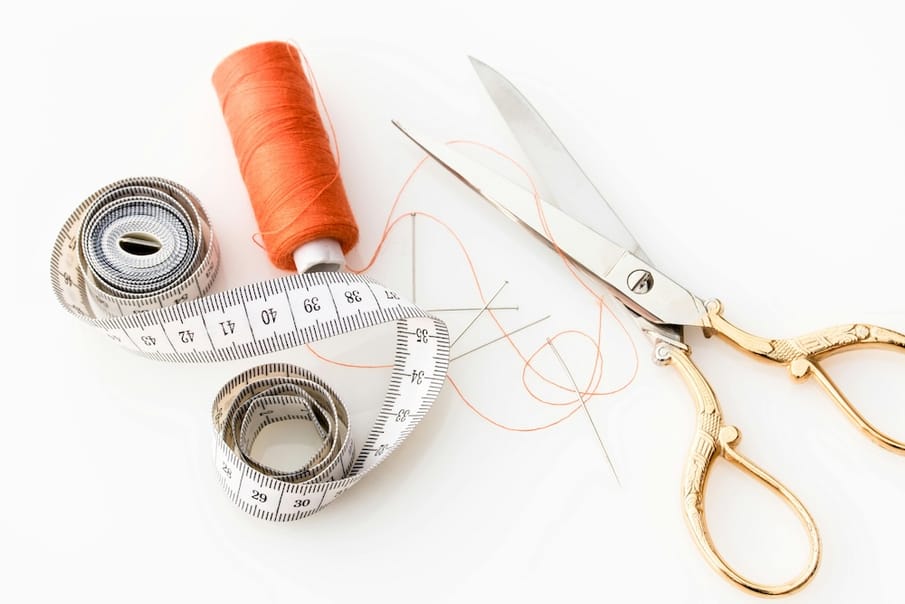With community initiatives in the spotlight, we uncover one town’s incredible ‘share and repair’ project…
In a bustling community hall, a volunteer sits at a sewing machine, mending someone’s much-loved dress, while at another table, household tools are fixed. This is the Share and Repair Cafe, run by Transition Crich, in the village of Crich in Derbyshire.
This wholesome endeavour began five years ago, when an advert in the local magazine asked if anyone was interested in coming together as residents to make their village become more sustainable and environmentally friendly. Once Transition Crich was set up, it joined the international Transition Network (transitionnetwork.org) made up of groups that emphasise local, community-led actions.
Today, one of Transition Crich’s key activities is the Share and Repair Cafe, held quarterly in the village community centre. “We started off with just one room. We’ve now grown to using the whole space,” says committee member Linda. “We’ve grown from just repairing items to having craft activities, a cafe area, and stalls from local groups.”
Crucially, the group doesn’t charge for its services. “You don’t have to pay for your repairs,” says Linda. “People can come to the cafe and have the food and drinks for free if they want – we just suggest making a donation, because otherwise we wouldn’t be able to cover our costs.”
Alan volunteers at the Share and Repair Cafe as part of the sharpening service, helping give new life to everything from kitchen knives to garden tools. “The wonderful community here in Crich have been, and continue to be, an amazing support to my wife and I since we moved here in 2017, following my diagnosis with terminal prostate cancer,” he says. “Getting involved with every aspect of village and community life has helped foster a tremendously strong positive mindset, and helped extend my time on the planet. Giving something back is the least I can do.”

Clare volunteers alongside her husband, Steve. “I’m very worried about the climate emergency, and know that huge quantities of clothes are thrown away, unnecessarily,” Clare explains. “I have skills to offer to help people keep stuff out of landfill, and also to save money.”
She’s part of the sewing team, using machines and handsewing to mend clothes, bags, toys, soft furnishings – anything made of fabric. “We share our skills and encourage people to mend things themselves, with our support. Many people are anxious about sewing, or don’t have resources, but we supply fabric to practise on or patch things with, as well as pins, needles, and thread. We also offer advice on where else they could go, or how to recycle it. If they do have to throw something away, at least they know they’ve done their best.”
Unsurprisingly, it’s become a very popular community event. “I enjoy the inspirational stalls on themes such as wildlife, recycling, and crafts,” says regular attendee, Dawn. “I also enjoy the book and seed swaps, and, of course, the delicious homemade refreshments! There’s always a friendly welcome, and it’s great to feel part of this caring community of like-minded people.”
It’s not just the warm welcome that brings her to the cafe, though. “As a childminder, I often have broken toys, and I go to get them fixed,” adds Dawn. “For a voluntary donation, these toys now have a new lease of life, have been saved from landfill, and are being played with once more.”
Although the UK has an above-average plastic recycle rate (~45%) when compared with the rest of the world (9%, according to the OECD), the majority of plastic is still burned, landfilled, or littered. Fast fashion is another major issue; according to businesswaste.co.uk, the world produces 92 million tonnes of textile waste every year. Mending items like broken toys or torn clothing can help reduce this, while also enabling residents to save money.
This commitment to action is evident in other projects Transition Crich facilitates. Clare Limb is a neighbourhood creative agent, linked to its local ‘Creative People and Places’ programme, which uses creative activities to engage with environmental issues. A photography competition encourages people to take photos while being mindful of nature. It also works with a junior school on environmental awareness projects, organises bimonthly litter picking sessions, and community gardening projects.
A sustainable fashion show is coming up, too. “People will write pledges on to pieces of fabric, and they’ll be pinned on to a dress that will be modelled, showing what people are pledging as personal actions to counter fast fashion,” explains Clare. The event will also include a clothes and pattern swap.
Whether a volunteer or event attendee, the community benefits greatly from being involved with Transition Crich – and it’s more than anecdotal. The Office for National Statistics revealed that 7.2% of UK adults “often or always” felt lonely in 2021. With studies, including research in PLOS Medicine, showing that isolation and loneliness are linked to depression, anxiety, declining mobility, and high blood pressure.

Conversely, a 2023 study, in Family Medicine and Community Health, found an individual’s sense of community was directly associated with reduced symptoms of depression, anxiety, and stress, with the Mental Health Foundation’s 2022 report noting people coming together over a shared interest can tackle loneliness and increase feelings of belonging.
As we all know, loneliness isn’t reserved for one particular group of society. And the truly wonderful thing about initiatives like Transition Crich is that they often bring together people of different ages, creating intergenerational connections that can otherwise be hard to forge. Clare notes that it also has an inclusion policy to help make activities accessible and welcoming to all.
“I’ve been passionate about the environment, and I just didn’t know what to do with it. Then I found this group, and it’s brought me that sense of belonging with other people that really care,” says Clare. From helping the planet to providing meaningful connections, Transition Crich has become an integral part of the community.


Comments